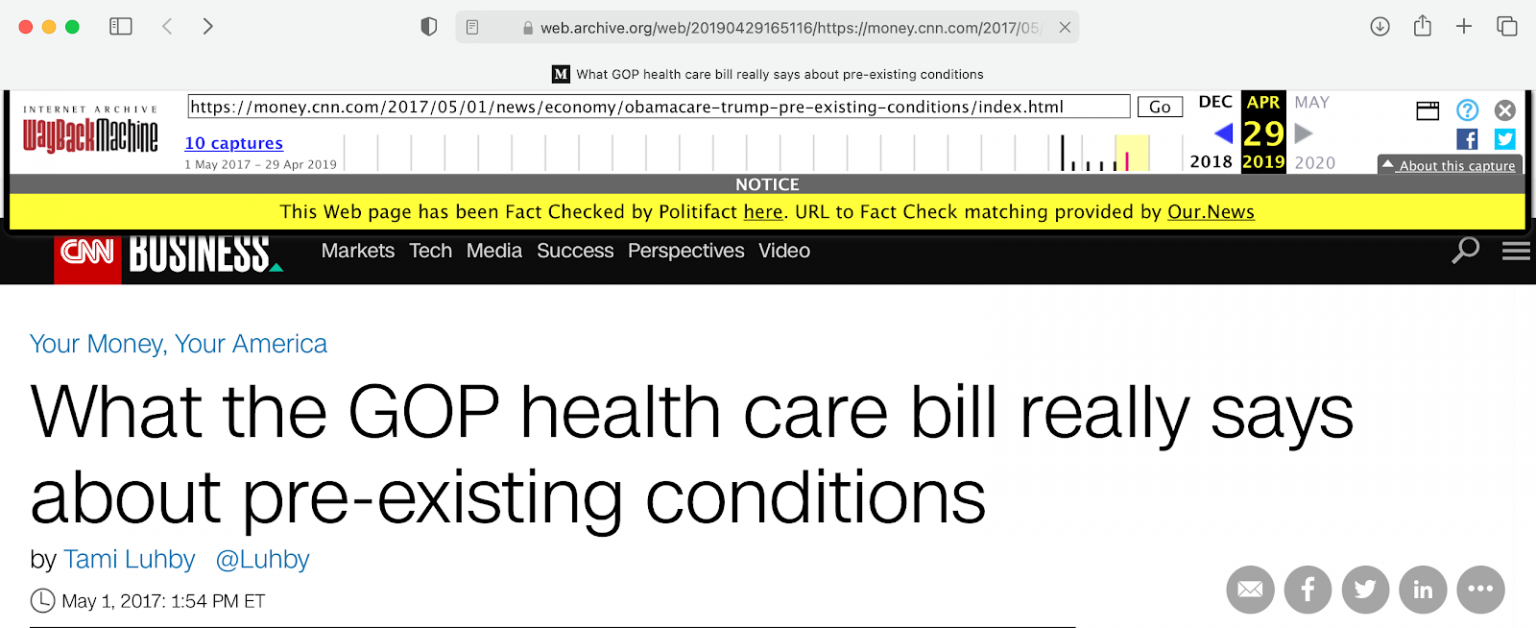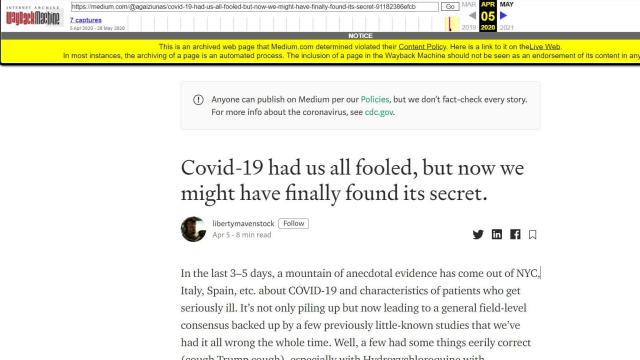Online platforms are in the midst of a reckoning, and it hasn’t been pretty. Disinformation campaigns and conspiracy theories have run rampant online for years, bleeding into the real world in terrifying or even deadly incidents, but websites only recently began cracking down on them in earnest with comprehensive fact-checking policies. Now, the internet’s largest digital repository, the Wayback Machine, is joining the likes of tech giants like Twitter, Facebook, and Google by adding fact-checking labels to its archived web pages that contain false or misleading information.
For the uninitiated, the Wayback Machine is the closest thing the internet has to a time machine. Run by the non-profit group The Internet Archive, this public digital archive boasts more than 20 years of web history across nearly 500 billion web pages, audio recordings, videos, and images.
Wayback Machine director Mark Graham said they made the decision to include annotations after noticing that several fact-checking organisations referenced archived pages in their collection. By continuing to present these inaccurate web pages without proper context, the team realised they could inadvertently influence how users understood what they were reading on the site.
“We are attempting to preserve our digital history but recognise the issues around providing access to false and misleading information coming from different sources,” he wrote in a blog post announcing the change this week.
In one example he cited, the misinformation watchdog group Politifact researched President Donald Trump’s claims that the 2017 health care bill proposed by the GOP wouldn’t eliminate protections for people with pre-existing conditions. The group’s investigation, which cited CNN coverage recorded by the Wayback Machine, determined the claim was “mostly false.” To highlight this, the Internet Archive added a yellow banner to the archived page with a disclaimer pointing to Politifact’s research, as you can see in the screenshot below.

Another example referenced a web page that researchers at Graphika, a social media analysis firm, determined was part of a Russian disinformation campaign. In a third example, Medium removed a post that violated its policies against covid-19 misinformation. The Wayback Machine tacked banners to both archived pages explaining this context.
“As a library, our intention is to provide access to source material that might otherwise disappear but doing so with context prominently displayed,” he said.
I bet when the Internet Archive began its mission, it didn’t suspect that recording snapshots of the web would eventually involve becoming arbiters of truth. But I’m happy they realised that with the sheer volume of misinformation that bad actors are pushing online to try to manipulate readers, inaction has become a stance in itself. As social media platforms are only now fully realising, hosting that bullshit in the first place makes you complicit in its spread.
